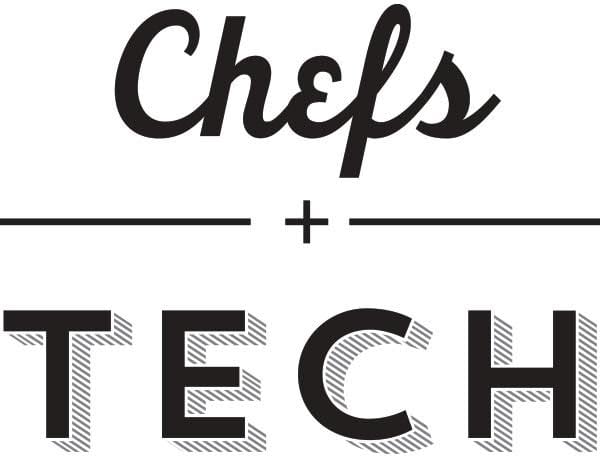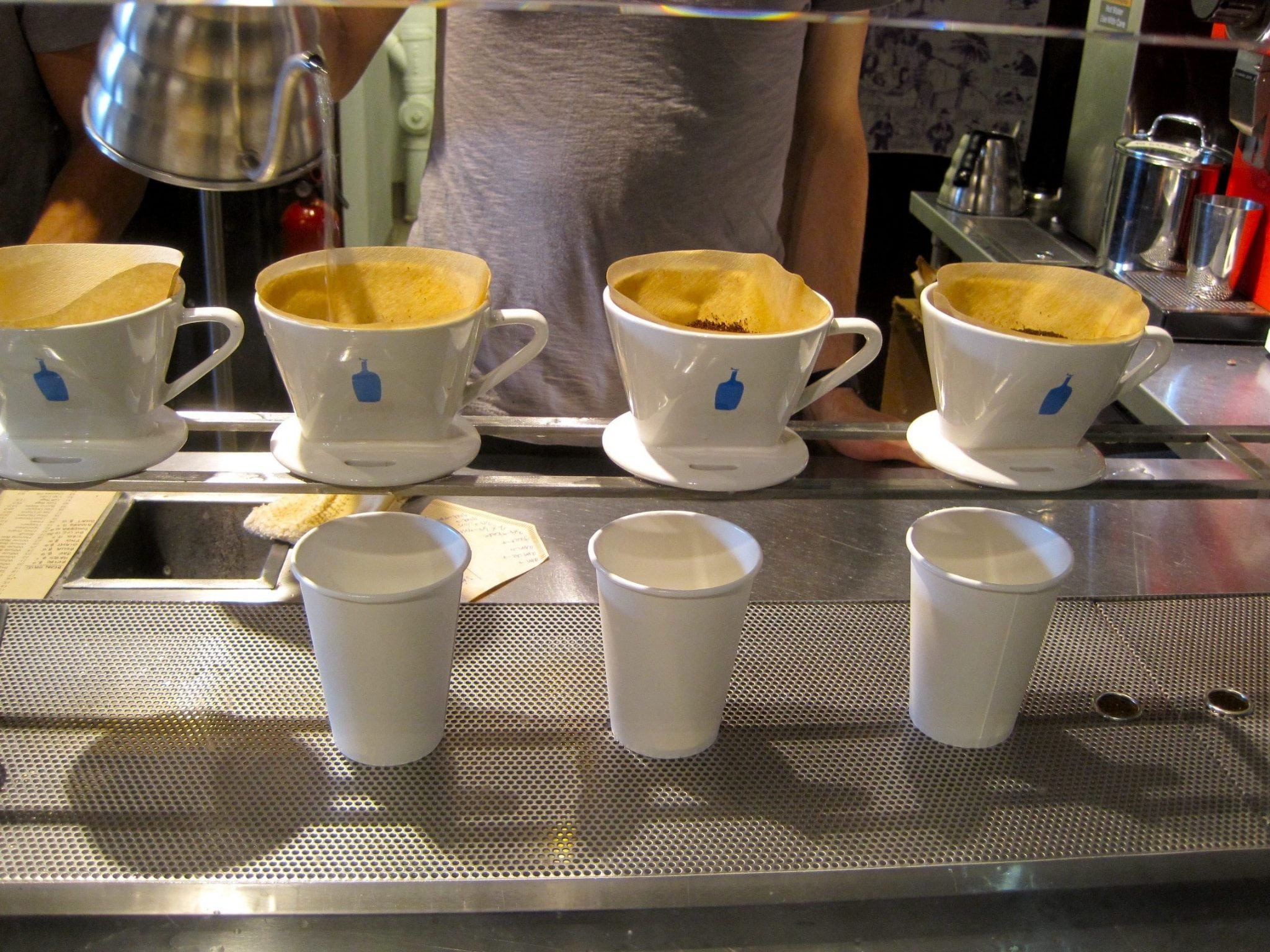Skift Take
We're pulling for Blue Bottle to maintain its indie cred even though it now has serious corporate backing.
 Editor’s Note: Last year we announced that Skift was expanding into food and drink with the addition of the Chefs+Tech newsletter.
Editor’s Note: Last year we announced that Skift was expanding into food and drink with the addition of the Chefs+Tech newsletter.
We see this as a natural expansion of the Skift umbrella, bringing the big-picture view on the future of dining out, being fanatically focused on the guest experience, and at the intersection of marketing and tech.
We publish C+T twice weekly.
Does Corporate Investment Kill Indie Brands?
Last week, Blue Bottle announced it had sold a majority stake in its coffee company to Nestle. The deal, which was reported by the Financial Times to be near $500 million for 68 percent, launches the third-wave coffee company into the realm of corporations. Response has been torn between congratulating a team on its large sale and concern that the brand had sold out to Big Food. This sort of thing plays out all the time as beloved brands and companies become so successful that everyone wants a piece. There are positives and negatives, but at the end, sometimes corporate investment is the only way to grow. This also played out in the Bay Area a few years ago when Starbucks purchased beloved local chain La Boulange, spreading its recipes and branding across tons of Starbucks stores but totally killing its presence in its hometown.
Do people like Blue Bottle because it’s considered hip and indie, or do they like it because it tastes good? If it’s the latter, will corporate dollars change that? And while this may not be the way forward that outsiders think they want, it’s probably the best way forward to sustain the business. Two years ago, Blue Bottle announced a merger with San Francisco local Tartine. Months later, both sides decided to cancel the agreement, explaining that their individual plans were best suited by moving forward independently.
One can easily understand the fear when a beloved local takes the next step. (I sure did feel a little resentment when New York got my San Francisco Blue Bottle in 2010.) Would we support San Francisco’s fast-casual greek Souvla just as much if they were owned by Chipotle? I hope so, because losing access to that chicken salad would be a travesty. Going big doesn’t have to mean selling out, so here’s hoping Blue Bottle maintains its roots even with its new corporate backing.
About that Recode Mario Batali Interview…
I’ll be the first to tell you that chef and restaurant culture has inserted itself into plenty of seemingly unrelated parts of society, including technology. Chefs and restaurateurs are speaking with increasing frequency to tangential topics like technology, creativity, and retail. Last week, Recode’s Kara Swisher interviewed chef, television personality, and all-around well-known guy Mario Batali. (Don’t call him a celebrity chef; he says there are few and they’re reserved for the Jacques Pepins of the world. “Just because you’re on TV doesn’t make you a celebrity chef.”)
Batali is extremely active on social media, has a huge following, is on television daily with The Chew, and runs his own restaurants in addition to everything else you’ve heard he’s done. If anyone is poised to speak about the evolving industry, including how social and technological changes have affected it, he can. That’s why it’s so disappointing that Swisher stuck relentlessly to elements of a tech-forward dining experience that are so tired they’ve become cliché. Juicero, Soylent, and automated restaurant Eatsa are tirelessly evoked as examples of food technology. Yes, Juicero was a spectacular trash fire and has gone up in flames, but Soylent is chugging along, popular among its devotees and even showing up at 7-11 stores. Regardless, Juicero and Soylent have nothing to do with Batali’s restaurant industry.
Similarly, a quinoa bowl from Eatsa and a lunch reservation at Del Posto are completely opposite experiences; one would never be simply substituted for another. As Batali tries to pivot the conversation to the ways these tech theories, played out in extreme in the San Francisco/Silicon Valley bubble, might affect restaurants, Swisher doubles down on them as the future of food. To be fair, I wasn’t in the audience and I didn’t produce the conference. But I found this conversation between two bright and accomplished minds onstage, talking how their respective industries affect one another, a true missed opportunity to push the restaurant-tech industry forward.
Sweetgreen Says Its Cash-Free Policy Is Going Mostly Well
In more relevant news coming out of Recode’s Code Commerce, Sweetgreen, which ditched cash as a form of payment earlier this year, says the experiment is going well, though it’s not without its problems. Going cashless can be perceived as a move that’s hip, fresh, and tech-savvy but it can also quickly alienate people who don’t use or don’t have credit cards or phones — or anyone who happens to find themselves with a $10 bill in their back pocket.
Co-CEO Jonathan Neman cites four reasons the company decided to go completely cashless, after testing the idea for a year: safety of employees (less cash = fewer trips to the bank = less potential crime); speed and efficiency; cleanliness (handling food and cash created a food safety problem “we didn’t want to deal with,” he says); and encouraging customers to use the mobile app. While lines outside stores are great buzz, he says the company is trying to solve for convenience.
Code Commerce was meant to cover the changing retail landscape, and Sweetgreen’s disclosure that it wants its customers to use the mobile app so they can learn more about them is hardly surprising. Though they begin to address the divisive nature of a digital-based platform for order placement, they don’t offer a solution. (I guess we should be happy they’re thinking about it?)
It’s tricky to create and sustain a business model for something as egalitarian as affordable food when a not-insignificant portion of the population literally can’t experience it. If Sweetgreen and others truly want to bring healthy, well-made food to the masses, they must tackle this problem head-on, and soon.
Digestifs
- The fate of NYC’s undocumented bakers could change the restaurant industry — Civil Eats
- The food hall “trend” gets the NYT Business treatment — New York Times
- Taco Bell will expand its footprint in New York big time and most locations will serve alcohol. Whee! —Eater
The Daily Newsletter
Our daily coverage of the global travel industry. Written by editors and analysts from across Skift’s brands.
Have a confidential tip for Skift? Get in touch
Tags: chefs, restaurants
Photo credit: Nestle now owns a majority of "hipster" Blue Bottle Coffee. bhamsandwich / Flickr
